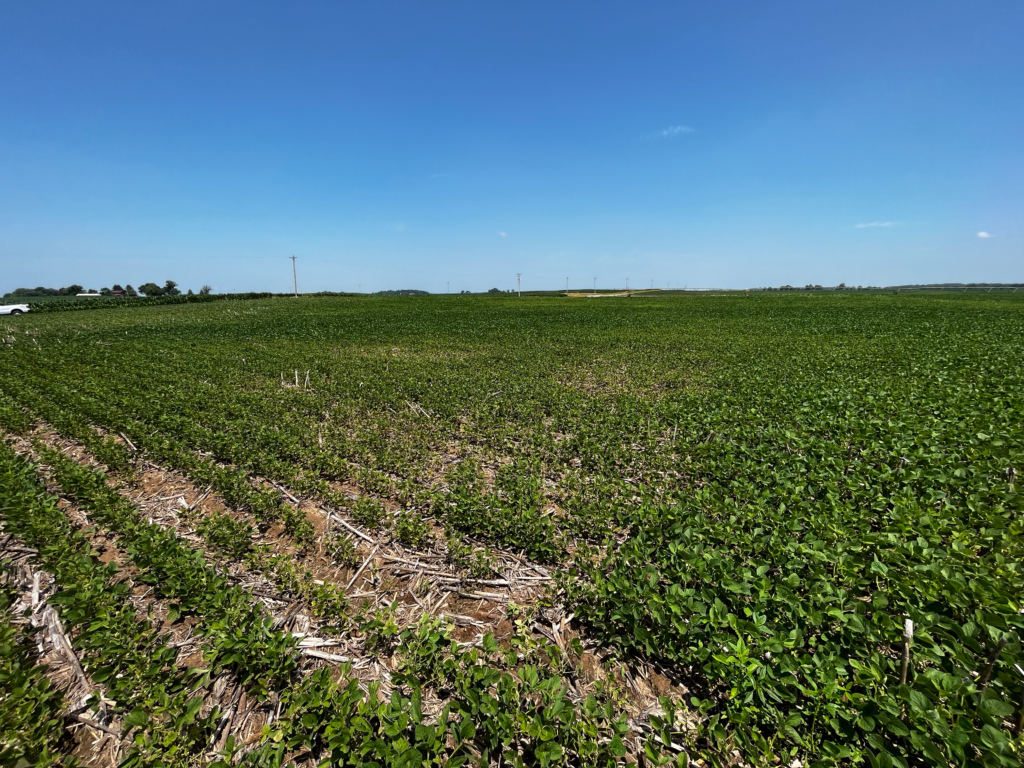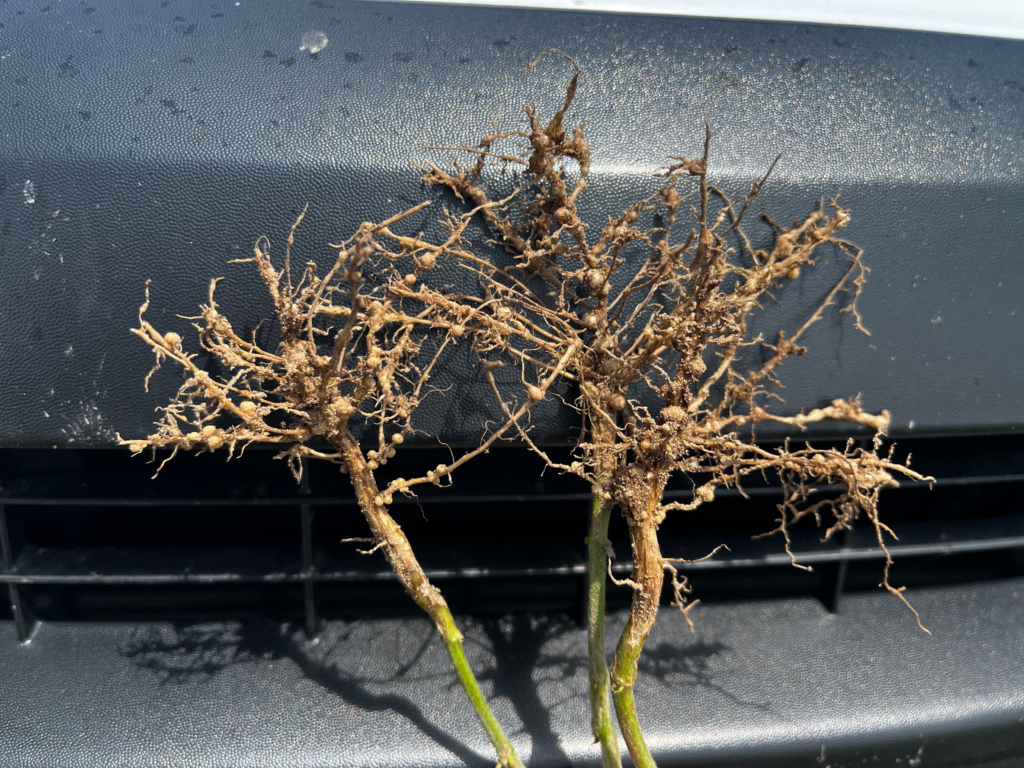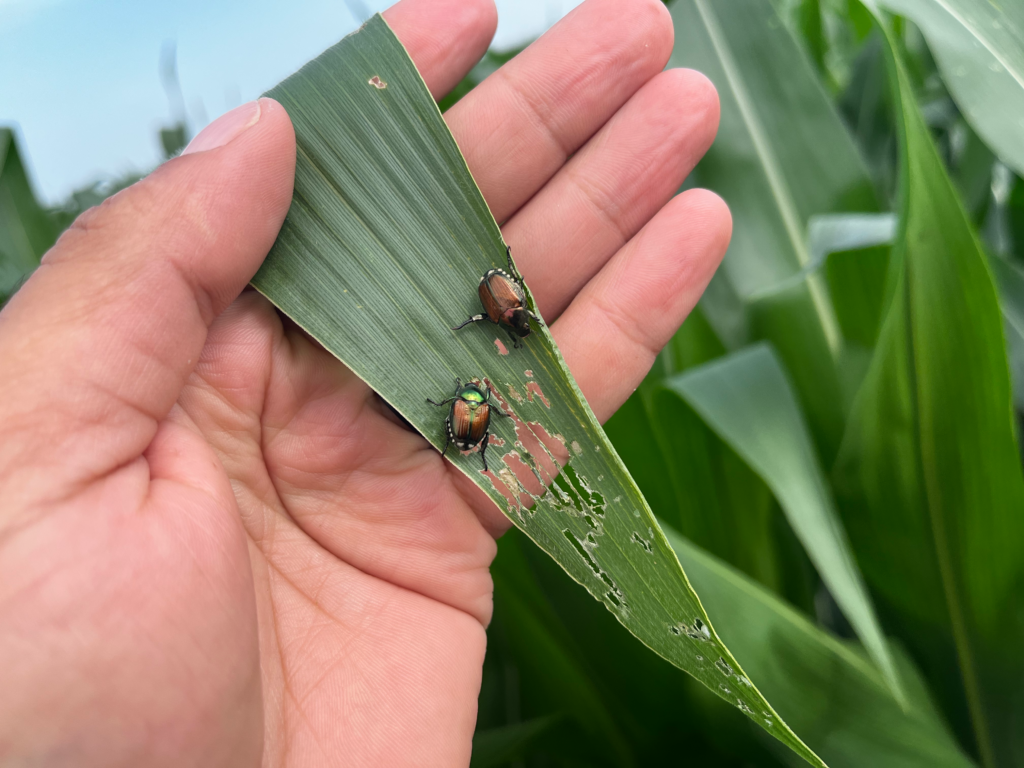
Leonardo Rocha
Soy Envoy
leonardo.rocha@siu.edu

Leonardo Rocha
Soy Envoy
leonardo.rocha@siu.edu
LEONARDO ROCHA UPDATES



The lower-than-average precipitation not only slows plant growth but also intensifies symptoms caused by soil-borne pathogens (SCN, root-knot nematode, etc.). In this field, just outside Carmi, we can observe severe symptoms caused by the root-knot nematode (Meloidogyne incognita). The symptoms were limited to only a patch in the field over a sandy hill. This nematode does not cause nearly as much damage as SCN in Illinois, but we must keep an eye open for it.
This nematode prefers sandier soils and is most likely found in areas closer to the rivers. If you see patches with stunted plants, dig up some plants and look for galls (see image 2). There is nothing we can do to manage this nematode in this season, but a seed-applied nematicide can help in the future. Corn is also a host of this nematode, so crop rotation is less effective in this case.
Open skies, temperatures reaching close to 90s during mid-day
Recent precipitation has helped
V6
V8-V10
Wheat fields in this area are being harvested and some double-cropping beans are being planted


 and then
and then